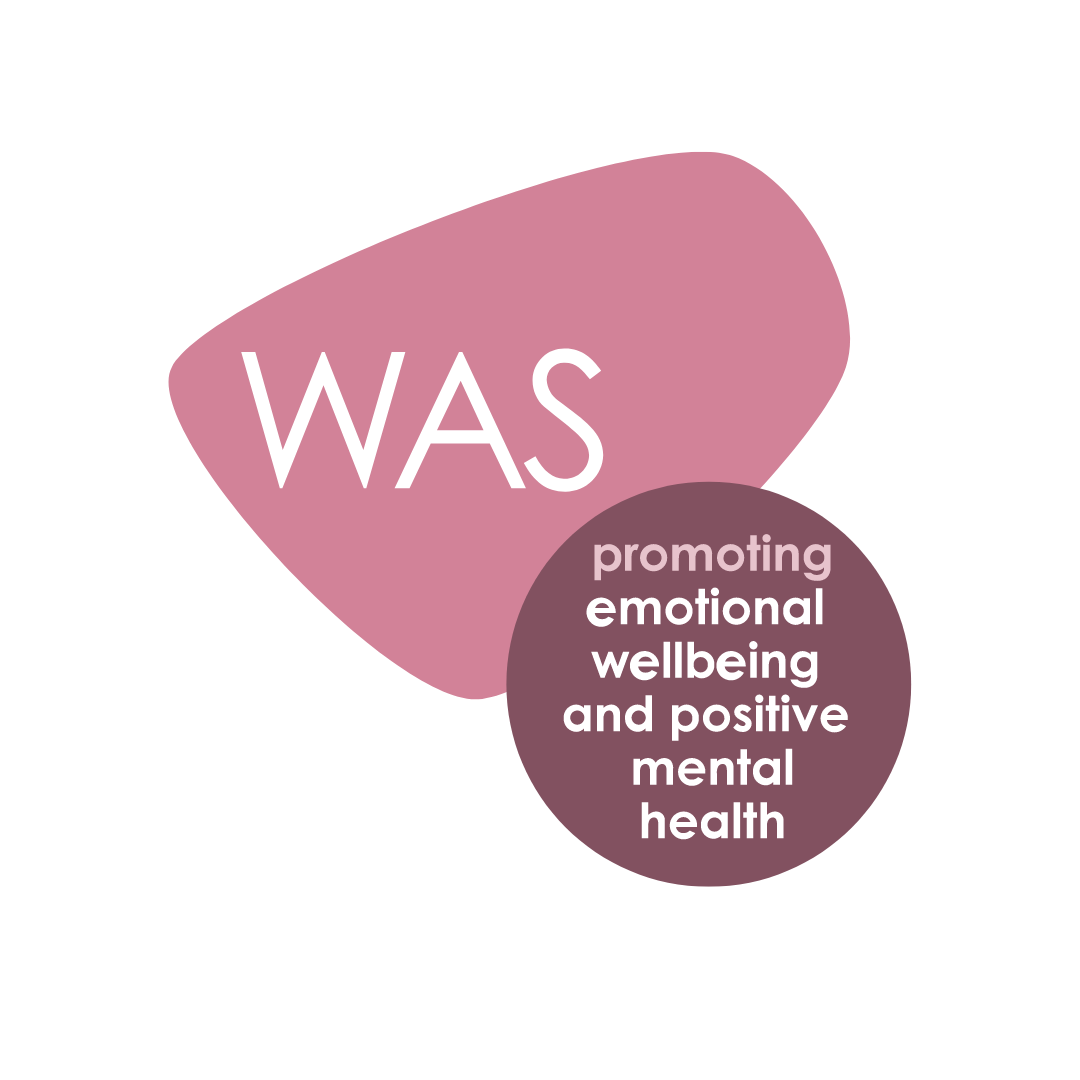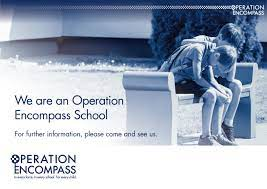What is success in our schools and how should we measure it?

What is success in our schools and how should we measure it?
The question of how to measure success in life is one typically left to philosophy classes or late nights at the bar. It is a complex, perhaps unanswerable question. Can the success of any educational initiative be measured by academic achievement alone? What does success mean within the realms of education? What does it look like? As with many seemingly simple questions, the answer is nuanced and specific to the person and organisation answering it. The concept of success is ultimately abstract, but I do have a personal view of what I feel success looks like at Mowden.
Any broad vision of success in schools is undoubtedly undermined by the politicisation of education and the need for accountability, which has driven narrow measurable outcomes. Evidence based decision making has been singled out as the only true way to measure success, especially when the media needs quick, easily digestible chunks to satiate its audience’s need for a simple answer. The NHS, government, business and now education are driven by data, but this is a dangerous road for education to go down with blinkers on. I would not suggest for one moment that data is pointless, but I would suggest that an oversimplified view of what it represents is very dangerous indeed. Success is clearly more than Maths or English SATs and grades on a page. Nevertheless, such measures are desirable and they help us to understand, but they are not the end point in themselves. Education has another set of less easily measurable outcomes that are as, if not more important than traditional measures.
The modern world needs modern thinkers. Increasingly we are seeing the need for students to master higher-order thinking skills so that they are able to see the relationships among seemingly diverse concepts. These higher order abilities (recall, analysis, comparison, inference, and evaluation) are central to success in the modern workplace and beyond. Crucially, they are the kinds of skills that are not necessarily tracked by any current battery of tests. Teamwork, collaboration, and moral character are critical too - but again, standardised testing cannot track these either. Businesses are always looking for employees with people skills - the ability for a young adult to simply get along with others is priceless . . . but it’s not measured. Angela Duckworth’s 2016 bestselling book ‘Grit: The Power of Passion and Perseverance’ changed how many educators view non-cognitive skills. An exhaustive, thoroughly researched inventory of highly successful people in fields as varied as music, professional football, and the military, it examined what makes people who perform at the highest levels tick, and concluded that characteristics like passion for the subject matter and a willingness to work hard were more predictive of success than scores of raw intelligence or natural ability. For the highest achievers, it was grit that made the difference. So, we are safe to assume that success goes well beyond what we can measure. However, we can encourage these elements by creating a community that values these traits and recognises these as desirable and important.
So, the shorthand of data as a measure of success has clear limitations. The data goalposts are now so narrow, that the game has become incredibly difficult to play. Here at Mowden I feel we are unified in identifying a wider set of goals for true, successful education.
We value academic achievement. But we also view physical and mental health as the foundations of any happy, successful learner. As the saying goes: you cannot Bloom until you Maslow. Socio-emotional development is closely linked to the mental and physical health of any child, and this dimension of learning must be recognised. Pupils also need to be creative and innovative - something which the Victorian, industrial education system can struggle to reconcile itself with. Throughout history, creative thinkers have often been the disruptive ones whose vision does not sit easily within the confines of a traditional classroom. Citizenship and democracy are becoming increasingly crucial as we come to terms with the globalization of all aspects of our lives. Finally, success is closely linked to the climate within a school. Does it value reading? Does it value honesty? Creativity? Physical excellence? Musicality? Stagecraft? Confidence (quiet, loud and every other type in between)? Humility? Friendship? The list goes on.
Clearly, each of these areas are not mutually exclusive - they are inherently interlinked. The interplay between them is so nuanced that any measurable outcomes are difficult to measure and explain simply. However, measurement does not need to be by number. When you teach in truly exceptional schools, you can feel and see these elements come together.
Nevertheless, here at Mowden we do measure, probably more so than ever before. However, we measure using what I would describe as 4 dimensions of learning which begins to take into account this broader view of what success is. This allows us to individualise the educational experience and to identify patterns/trends as early as possible.
The first areas to consider when looking to track academic performance is perhaps the most obvious: what are each student’s underlying abilities and strengths? To consider this point we use a range of cognitive ability tests (CATs). We assess students in Years 2, 4 and 6 using these CAT tests to help get to grips with students’ strengths, weakness, learning bias and likely academic aptitude and preferred mode of learning in different areas of the curriculum. CATs give us four measures of ability that are known to impact on learning.
Verbal Reasoning – the ability to express ideas and reason through words is essential to subjects with a high language content, and the most obvious skill picked up by traditional assessment.
Non-verbal Reasoning – problem-solving using pictures and diagrams; skills which are important in a wide range of school subjects, including maths and science-based subjects.
Spatial Reasoning – the capacity to think and draw conclusions in three dimensions, needed for many STEM subjects, but not easily measured by other datasets.
Quantitative Reasoning – the ability to use numerical skills to solve problems.
While many tests focus on a child’s attainment in core subjects, CATs are designed to give schools a much broader, more rounded view of each child, their potential and how they learn. Results help teachers decide about the pace/style of learning that is right for a student and whether additional support or challenge is needed. CATs are based on years of research and development. The current edition took five years to develop and the involvement of 25,000 students across the UK. It is a well-known assessment in schools; teachers value its ability to provide an understanding of what a child is capable of rather than defining them by their understanding of a body of knowledge in particular subjects. CATs help us to set ambitious but realistic attainment expectations for students across the whole school. This is essential to enabling teachers to ensure that every child is achieving well within the context of holistic development.
Once a measure of potential has been taken, the focus shifts to attainment. The school sees core attainment in English and Maths as two key indicators. To this end, we use Progress in English (PiE), which tests reading and writing ability, and Progress in Maths (PiM) which identifies and monitors individuals’ strengths and weaknesses in Maths. CAT4 scores are compared against the standardised age scores from PiE and PiM. In this way, any students who are underperforming are immediately brought to the fore. In addition, the school is using Accelerated Reader to closely monitor reading development and attainment. There are proven strong correlations between reading and wider academic performance, even in Maths. We track the scaled score, the standardised score and the difference between the chronological age and reading age.
To support each child in reaching their full potential, we also develop a greater insight into how students feel about themselves and school life more broadly. We do this through our half-termly ‘Wellbeing Questionnaires’ and PASS assessments. Attitude certainly underpins pupil performance and informs the wider picture. Attitude can be the missing element when it comes to looking at why certain students who, while able, consistently underachieve. The Pupil Attitudes to Self and School (PASS) attitudinal survey is an easily-administered online questionnaire, which measures nine attitudes proven to be linked to attainment, engagement and wellbeing. The school surveys every pupil from Year 1 to Year 8 and the results are used in combination with all the other data to gather a fuller and more human picture of an individual’s profile.
|
Attitudinal factor |
What it measures |
|
1. Feelings about school |
Explores whether a pupil feels secure, confident and included in their learning community. |
|
2. Perceived learning capability |
Offers an insight into a pupil’s level of self-respect, determination and openness to learning. |
|
3. Self-regard |
Equivalent to self-worth, this measure is focused specifically on self-awareness as a learner, highlighting levels of motivation and determination. |
|
4. Preparedness for learning |
This measure covers areas such as study skills, attentiveness and concentration, looking at the pupil’s determination and openness to learning. |
|
5. Attitudes to teachers |
This measures a young person’s perceptions of the relationships they have with the adults in school. A low score can flag a lack of respect. |
|
6. General work ethic |
Highlights the pupil’s aspirations and motivation to succeed in life, this measure focuses on purpose and direction, not just at school, but beyond. |
|
7. Confidence in learning |
Identifies a pupil’s ability to think independently and to persevere when faced with a challenge. |
|
8. Attitudes to attendance |
Correlating very highly with actual attendance 12 months later, this measure enables teachers to intercede earlier with strategies to reduce the likelihood of truancy. |
|
9. Response to curriculum demands |
This measure focuses more narrowly on school-based motivation to undertake and complete curriculum-based tasks, highlighting the pupil’s approach to communication and collaboration. |
If a pupil has low-self-esteem we are in a stronger position to know this and act appropriately.
The final part of this overall tracking/monitoring process is integrating the analysis of results from standardised assessments with teachers’ own judgements. This then feeds into our system of providing student support. As teachers, we use this data to keep a check on students’ global performance. We see the figures as an opportunity for discussion; to help plan for the future. Regular meetings are held to discuss pupil profiles and the data contained within the TIPS sheet (Tracking Individual Pupils Sheet). From these meetings we create strategies/processes/interventions to best support our pupils. This will range from subtle changes to classroom provision, to a shift in expectations, to extra reading sessions, to recommendations to seek an Educational Psychologist’s expert input.
Crucially, it is the whole picture that informs our analysis and not one or two measures. Each assessment point is an isolated fact taken on a specific day, so variances can occur. It is very easy to jump to conclusions based on one or two data points. However, the total picture provided by the various data points is one that gives us critical insights into our pupils’ journey here at Mowden.
Mowden has worked hard to design a comprehensive assessment programme that aligns with its ethos and supports its students’ educational as well as personal development. Schools exist to some extent to fulfil societal and parental expectations so it’s important to Mowden that pupils leave our school with a piece of paper containing exam results that does them justice but which do not define them as learners. Our sincerest hope is that the pupils who leave Mowden Hall will also do so with balance, harmony and the ability to adapt to the future, no matter what it might hold.
This final sentence brings me to the more intangible aspect of what success might look like.
In terms of physical and mental health, as already mentioned, we ask the pupils how they feel twice a term using our wellbeing questionnaire and we also conduct standardised assessments relating to pupils attitudes to self and study (PASS testing). Add to this the extensive curricular time given over to physical exercise, the outcomes and successes in this respect are excellent. We actively invest in the mental and physical health of our pupils. Across the developed world, health outcomes are a real area for concern within education as schools struggle to ensure minimum levels of physical activity, whilst supporting an ever narrowing vision of what a successful education is. Our broad understanding of what constitutes success allows us to make sure that this does not happen.
One area that is closely linked to health and well-being is students’ social-emotional development (non-cognitive skills or interpersonal and intrapersonal skills). These skills range from self-regulation (the ability to plan and monitor behaviour) to the ability to work in diverse groups. There is powerful evidence that these skills are critically important both for students’ long-term well-being and for their ability to be productive members of society. At Mowden we celebrate this in our Mowden Acts of Kindness and the extensive co-curricular programme and broad pedagogical approach allows enhanced teacher–student relationships and interactions - a process which is greatly undervalued within the sector as a whole. I run Deconstruction Club - the development of skills that happens here is phenomenal - deferred gratification being one, as you can easily spend 30 minutes finding just the right hex-head bit to remove the back of a washing machine! Certainly when we report to prospective senior schools when recommending pupils, this backdrop of socio-emotional development is one that is closely described and evidenced in any reference.
Creativity and innovation are certainly areas that we look to foster in order to allow pupils to find success. On a simple level, this can be seen through pupil engagement within the Arts. However, this is also a strand in all subjects. Creativity can be fostered and reinforced across the entire curriculum and extra-curricular activities. The sheer breadth of creative and innovative thinking opportunities at Mowden is astonishing. Airfix, for example, requires constant fettling and problem solving even within a pre-formed kit. When pupils help to design their own scenery and costumes in year group plays we see huge levels of creativity and innovation. Recently in History we created and designed our own ‘triorama’. The list goes on. The key is that for true success to happen, we must offer a range of opportunities for students to engage in creative work in all areas of the curriculum.
For a school to consider itself successful it really does need to address the concept of democracy and citizenship. Over recent years, this has been labelled as ‘Fundamental British Values’ (FBVs). This core idea is covered and addressed within all curriculum areas. What are the FBVs? They are the core concepts and ideas that make up our national DNA. They include: the idea of democracy; the rule of law; individual liberty; mutual respect for and tolerance of those with different faiths and beliefs and for those without faith. We look to enable students to develop their self-knowledge, self-esteem and self-confidence; to distinguish right from wrong and to respect the civil and criminal law of England; to accept responsibility for their behaviour, show initiative, and to understand how they can contribute positively to the lives of those living and working in the locality of the school and to society more widely; to acquire a broad general knowledge of and respect for public institutions and services in England; to further tolerance and harmony between different cultural traditions by enabling students to acquire an appreciation for and respect for their own and other cultures; to encourage respect for other people, and encourage respect for democracy and support for participation in the democratic processes, including respect for the basis on which the law is made and applied in England. In my own subject, History, these are powerful themes. Students explore issues such as democracy in their historical context and relate them to the modern day through studying events such as the First Parliament, the Civil War and establishment of the Republic. This enables the students to understand how, overtime, changes happened and to evaluate their impact. By looking at the achievements of famous British people, students develop an awareness of how they have influenced and shaped the country in which we live. This includes an appreciation of the impact of their work in periods such as the Industrial Revolution as well as the contribution made in both World Wars. Teaching students to respect and value diversity is developed in the study of issues such as Britain’s Empire. Furthermore by linking issues such as the Cold War to modern day issues such as terrorism, students are made aware of the importance of British values over time. These values are also encouraged in the day to day teaching and learning through showing respect for different viewpoints and ideas as well as in the ability to work effectively together both individually and in groups. For a pupil to move on in a successful manner, they need to have been exposed to the ideas and teachings relating to these fundamental British values and this is a key theme in all subjects and is promoted actively throughout the curriculum.
Finally, success is underpinned by the ability of children to access a positive school climate and learning environment. This is harder to define than other measures. However, in broad terms it is related to equitable treatment and the quality of relationships between all parts of the school community: students, teachers, support staff and parents. The quality of relationships is truly exceptional and something we work on day in and day out. We cover this in assemblies and chapel service, but also on a day to day level via multitudinous smaller interventions and support processes. Academically, it relates to access to opportunity and the expectation that we will all do our best to work hard and achieve. Mowden is a very special school to work in precisely because this aspect of success is so well developed.
One area we are especially proud of is our commitment towards the love of reading. That moment a young child finds their first proper book by themselves, and falls into its pages, is a critical moment. Reading can define our whole lives. Reading for pleasure can benefit a child’s education, social and cognitive development, their wellbeing, and their mental health. Numerous studies have detailed the effects of reading on later literacy skills, facilitating social interaction between adults and children, and encouraging children to engage with the world around them. It also states how reading can be a ‘stable source of information’ throughout a child’s life. This stability allows them to access text in a constant fashion and can be especially beneficial for children growing up in challenging circumstances. However, the impact of reading goes beyond this and the impact of reading for pleasure is massive for children: their vocabulary is larger and more extensive; hey perform better academically; their imagination can run wild; heir creativity skills develop; they develop empathy; they gain a deeper understanding of their world; their concentration levels improve; the parent/teacher and child bond improves. their cognitive development is supported; their social skills and interactions improve. The pupils can now be heard talking about books and recommending books to each other. As a result of our excellence in this area we have been recognised as a Renaissance Champion School.
So, literacy and numeracy are undoubtedly important parts of school/pupil success, but I think it is important to recognise that a more meaningful definition is one that considers a much wider range of measures. There is undeniable overlap and interconnection between these areas and, done well, they are also mutually reinforcing - as can be seen in the example of reading for pleasure. Each area is significant both for students’ individual experience and knowledge, and for the public interest in ensuring pupils who are healthy, have a strong socio-emotional foundation, are creative and innovative, and are experienced in the notion of British values and good citizenship. It is also clear that school climate has a strong impact on our children’s ability to achieve these aspirations.
Success within education can never, will never and should never be allocated a simple number. The notion of what actual success is would suggest that such an approach is flawed. So much of what success is at schools is naturally resistant to being measured, and if you spend too long trying you may actually disrupt the very thing you are trying to measure. Nevertheless, we do need indicators and data. Such things are vital tools to help us in our overall desire to provide the best possible provision. Success is not static, it is dynamic, and it changes over time, along with our children. I would unequivocally suggest that over-eager measurement-based systems of accountability in our schools has had a damaging and pervasive impact upon what we consider to be success in schools and this has narrowed provision in some schools. We need to focus on all the other areas that we have identified as areas of success. Schools can make a big difference in supporting the strengths we want to develop in every child. We, as a community, need to recognise a wide range of important dimensions that lead to success in schools: academic achievement, physical and mental health, social-emotional development, creativity and innovation, and democracy and citizenship, being just a few. All schools need to be well placed to fulfil this vision and it is precisely this outlook that undoubtedly motivates the staff here at Mowden.
Mr. James Hadfield
Deputy Head









